-
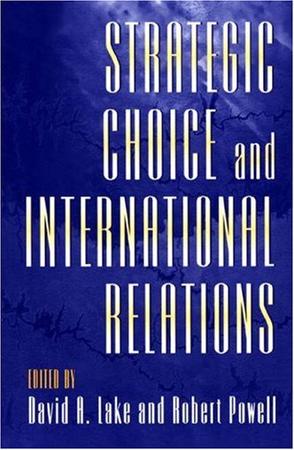
Strategic Choice and International Relations
The strategic-choice approach has a long pedigree in international relations. In an area often rent by competing methodologies, editors David A. Lake and Robert Powell take the best of accepted and contested knowledge among many theories. With the contributors to this volume, they offer a unifying perspective, which begins with a simple insight: students of international relations want to explain the choices actors make - whether these actors be states, parties, ethnic groups, companies, leaders, or individuals. This synthesis offers three new benefits: first, the strategic interaction of actors is the unit of analysis, rather than particular states or policies; second, these interactions are now usefully organized into analytic schemes, on which conceptual experiments may be based; and, third, a set of methodological 'bets' is then made about the most productive ways to analyze the interactions. Together, these elements allow the pragmatic application of theories that may apply to a myriad of particular cases, such as individuals protesting environmental degradation, governments seeking to control nuclear weapons, or the United Nations attempting to mobilize member states for international peacekeeping. Besides the editors, the six contributors to this book, all distinguished scholars of international relations, are Jeffry A. Frieden, James D. Morrow, Ronald Rogowski, Peter Gourevitch, Miles Kahler, and Arthur A. Stein. Their work is an invaluable introduction for scholars and students of international relations, economists, and government decision-makers. -
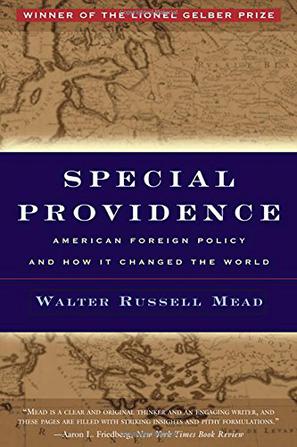
Special Providence
America is perceived as not having a foreign policy tradition, contends Mead (Mortal Splendor: The American Empire in Transition), a senior fellow at the Council on Foreign Relations. In fact, Mead contends, there are actually four contrasting schools of foreign policy: a "Hamiltonian" concern with U.S. economic well-being at home and abroad; a "Wilsonian" impulse to promulgate U.S. values throughout the world; a "Jeffersonian" focus on protecting American democracy in a perilous world; and a bellicose, populist "Jacksonian" commitment to preserving U.S. interests and honor in the world. As Mead's detailed historical analysis of the origin and development of these schools shows, each has its strengths and faults if Wilsonians are too idealistic, Jacksonians are too suspicious of the world but each keeps the other in check, assuring no single school will dominate and that a basic consensus among them will be achieved, as was the case during the Cold War. As the Cold War ended, however, and the world became more complex, consensus ended. Hamiltonians and Wilsonians saw the opportunity to mold the economy and morality of the world in the U.S. image, but Jeffersonian doubt about foreign action in places like Bosnia, and Jacksonian popular suspicions of organizations like the WTO soon challenged such grandiose plans. Mead worries that U.S. foreign policy is too unfocused today and suggests we could learn much from the interactions in the past of the four schools, a complex history he ably unfolds. 8 pages of photos not seen by PW. (Nov. 8) Forecast: With foreign policy at the forefront after September 11, this could help shape discussions of U.S. response; expect serious interest. -
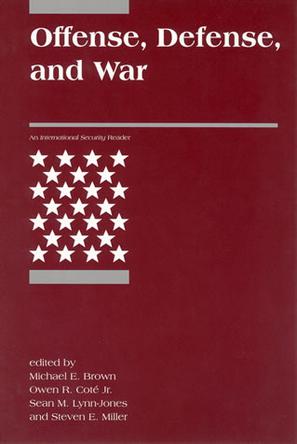
Offense, Defense and War
Offense-defense theory argues that the relative ease of offense and defense varies in international politics. When the offense has the advantage, military conquest becomes easier and war is more likely; the opposite is true when the defense has the advantage. The balance between offense and defense depends on geography, technology, and other factors. This theory, and the body of related theories, has generated much debate and research over the past twenty-five years.This book presents a comprehensive overview of offense-defense theory. It includes contending views on the theory and some of the most recent attempts to refine and test it. -
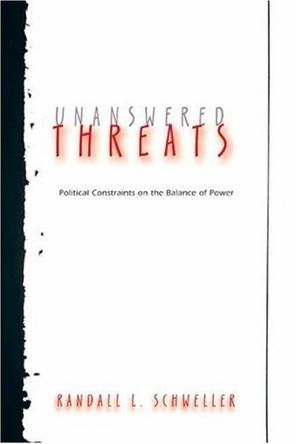
Unanswered Threats
Why have states throughout history regularly underestimated dangers to their survival? Why have some states been able to mobilize their material resources effectively to balance against threats, while others have not been able to do so? The phenomenon of "underbalancing" is a common but woefully underexamined behavior in international politics. Underbalancing occurs when states fail to recognize dangerous threats, choose not to react to them, or respond in paltry and imprudent ways. It is a response that directly contradicts the core prediction of structural realism's balance-of-power theory--that states motivated to survive as autonomous entities are coherent actors that, when confronted by dangerous threats, act to restore the disrupted balance by creating alliances or increasing their military capabilities, or, in some cases, a combination of both. Consistent with the new wave of neoclassical realist research, Unanswered Threats offers a theory of underbalancing based on four domestic-level variables--elite consensus, elite cohesion, social cohesion, and regime/government vulnerability--that channel, mediate, and redirect policy responses to external pressures and incentives. The theory yields five causal schemes for underbalancing behavior, which are tested against the cases of interwar Britain and France, France from 1877 to 1913, and the War of the Triple Alliance (1864-1870) that pitted tiny Paraguay against Brazil, Argentina, and Uruguay. Randall Schweller concludes that those most likely to underbalance are incoherent, fragmented states whose elites are constrained by political considerations. -
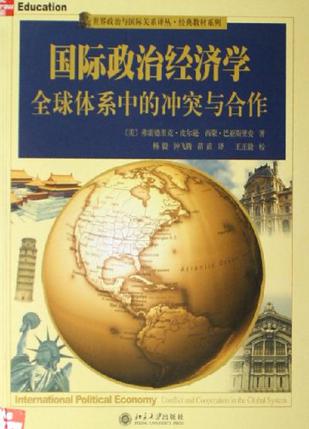
国际政治经济学
不断增强的一体化和世界市场的扩展所带来的相互依存和全球化的趋势为国际合作提供了更多的机会,同时也增加了冲突的可能性。利益集团、各国决策者和学术界对全球化这一现象褒贬不一。对一些人来说,它使人受益,因为它带来了空前的繁荣与和平;而对另一些人来说,它又成为资本主义剥削的动力并且造成了一系列的麻烦,比如某一地区严重的经济危机会把另一地区的国家拖垮。这些发展是否足以能够解决金融和股市动荡、债务危机、地区性贫困、日益增长的贸易争端及保护主义问题,仍需我们拭目以待。很明显,这些问题为学者提供了丰富的研究议题,也为我们审视诸如跨国公司、发展政策、不平等与依附的现状以及非正规经济这些直接或间接地影响着世界各地数以百万人生存的全球经济问题提供了崭新的视角。 这是一本国际政治经济学的经典教材。本书介绍了从17世纪中叶开始的国际政治经济体系的演变与主要特征,以及当前引起争论的问题。此外,本书介绍的相关理论均结合以实例或分析,同时还配有大量的专栏、图表以及注释加以说明。在每一章的结尾部分对该章的主要内容进行了小结,同时还针对书中 的主要内容列出了相关的讨论题目,以便于课堂讨论和批判性的思考。 -
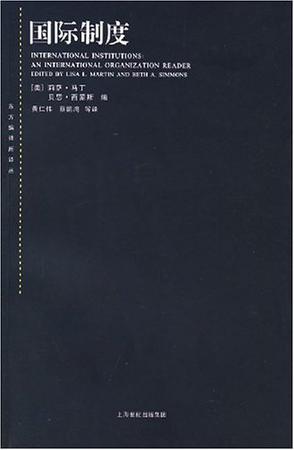
国际制度
本书展示了有关国际制度研究的一系列影响深远的理论方法。本书由四部分组成,每一部分编者都作了详尽的介绍。第一部分涵盖了当前的理论研究。第二部分主要是经验研究、涉及国际组织、国际环境问题、欧洲法院和国际贸易。第三部分聚焦于遵约辩论。第四部分收录了理论研究和经验研究的评论文章。